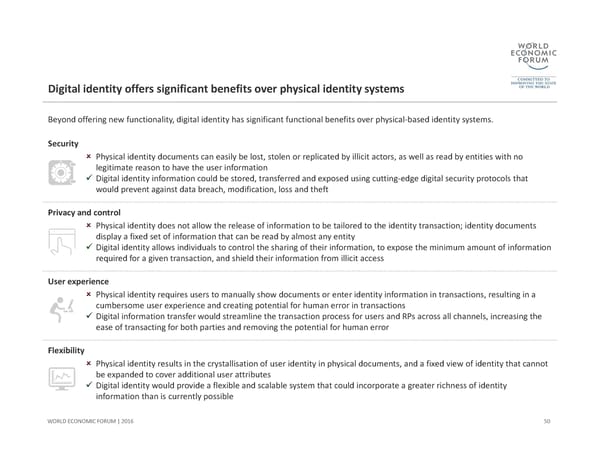Digital identity offers significant benefits over physical identity systemsBeyond offering new functionality, digital identity has significant functional benefits over physical‐based identity systems. 50 WORLD ECONOMIC FORUM | 2016 Security Physical identity documents can easily be lost, stolen or replicated by illicit actors, as well as read by entities with no legitimate reason to have the user information Digital identity information could be stored, transferred and exposed using cutting‐edge digital security protocols that would prevent against data breach, modification, loss and theft Privacy and control Physical identity does not allow the release of information to be tailored to the identity transaction; identity documents display a fixed set of information that can be read by almost any entity Digital identity allows individuals to control the sharing of their information, to expose the minimum amount of information required for a given transaction, and shield their information from illicit access User experience Physical identity requires users to manually show documents or enter identity information in transactions, resulting in a cumbersome user experience and creating potential for human error in transactions Digital information transfer would streamline the transaction process for users and RPs across all channels, increasing the ease of transacting for both parties and removing the potential for human error Flexibility Physical identity results in the crystallisation of user identity in physical documents, and a fixed view of identity that cannot be expanded to cover additional user attributes Digital identity would provide a flexible and scalable system that could incorporate a greater richness of identity information than is currently possible
 A Blueprint for Digital Identity Page 50 Page 52
A Blueprint for Digital Identity Page 50 Page 52